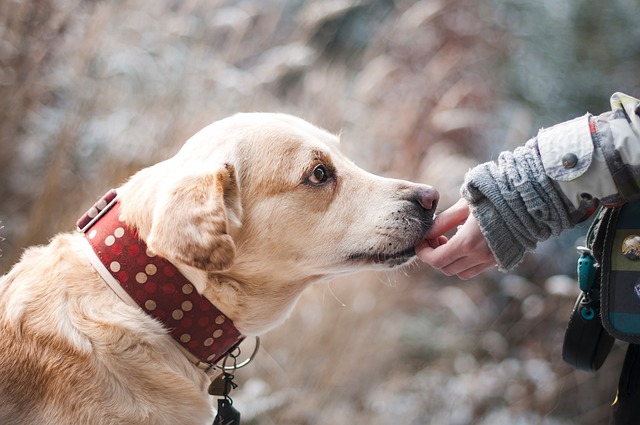Reprinted with permission from Dr. Will Falconer, DVM
This just came to my support email:
My vet wants to give the rabies vaccine to my 14 year old dog whom was just diagnosed with CHF (congestive heart failure), grade 5/6 heart murmur. Is just beginning seizures, that’s why we took him I’m early for a visit. I feel with his health issues, which he does act fine otherwise. He doesn’t need it and should be able to continue on as he has. Your thoughts?
My thoughts poured out swiftly, as this was a crime about to happen.
Did you cringe a bit reading how this dog, with CHF (congestive heart failure) and SEIZURES was getting recommended for another round of rabies vaccine?
The vaccine, made from a nervous system virus, most likely to cause seizures (maybe distemper is a close second, as it’s also a nervous system virus) — are you serious, Dr. WhiteCoat?
I advised Sheila it would be pure and simple malpractice to vaccinate this dog, as it is with any ill dog. Here’s why all those animals have an automatic waiver.
For seniors in particular, highly likely already immune from previous shots in their history, to give another because of a bogus “law,” (see why I say that in my free Rabies Short Course) is all risk and zero benefit.
In short, Just Say NO.
I only hear of a small percentage of these animals, I’m sure, but all too often, the dutiful owner feels pressured to do this and the dog starts circling the drain shortly thereafter.
The article below, originally written in October 2023, will give you some examples of the damage possibly caused by following this recommendation. And some more ammo to fight the insanity.
Bottom line: Who’s going to end up bearing the burden of that damage if you allow it to happen by being a “compliant client?’
You, my dear. Only you.
And your beloved senior who was rocking along just fine until this last insult tipped his scales.
Forewarned is forearmed.
Please don’t allow this lunacy to steal your golden oldie prematurely. Read my original article below on the topic.
Original Article
I went through this exact thing with my lab, Chuck, my dog. He was diagnosed in August 2012 with LP then DM 2 months later. Acupuncture and water therapy gave me 8 months I don’t think I would have had. When he could no longer move his back end without help, I let him go. He was 13. My heart is still broken. –Cindi, in our comments
What Cindi is speaking of is getting her 13 year old vaccinated (he was “due,” according to her vet).
LP? Laryngeal paralysis. Lost his normal voice, and Chuck’s breathing got noisy.
DM? Degenerative myelitis. Basically, paralyzed from the waist down.
I hear variations of this way more often than I’d like.
They make me cringe.
- Cringe for your animals getting steamrolled by conventional vets.
- Cringe for you, following Dr. WhiteCoat’s instructions and seeing your animal fall apart.
- Cringe for my profession who, if they don’t know better, are causing harm.
- Cringe even more for my colleagues who DO know better but let the siren song of easy income entice them to vaccine injure your seniors.
Listen to the Experts. No: THESE experts!
You’re always smart to keep an ear out for conflicts of interest.
That’s true in any marketplace, including in Dr. WhiteCoat’s clinic.
As you learned if you watched the expose Vaxxed, science can easily take a back seat to Big Pharma profits.
The expert telling you to re-vaccinate your already vaccinated senior pet should be told in no uncertain terms that they are out of line.
How?
Cite the real experts.
The veterinary immunologists.
They don’t profit from pushing vaccines, but they know far more about them than the rest of us.
What do they say? Stop vaccinating.
Here’s one well worth a listen:
Older dogs that have been vaccinated with core vaccines maintain lifelong immunity. Old dogs and cats don’t die from CDV, CPV-2, CAV-1, or FPV because they have lifelong immunity. They generally die from noninfectious disease. — Ronald Schultz, Ph.D., Univ of Wisconsin-Madison 1
To translate those abbreviations for you:
- CDV is canine distemper (virus)
- CPV is canine parvo
- CAV is canine hepatitis
- FPV is feline panleukopenia, aka “feline distemper”
More is Better, Though, Right?
In the case of vaccines, that’s a strong no.
That’s a very dangerous assumption as no vaccines have been proven unequivocally safe.
In fact, vaccines were deemed “unavoidably unsafe:”
Congress in 1986 and the U.S. Supreme Court in 2011 declared vaccines to be “unavoidably unsafe” and shielded drug companies from all product liability.2
They were talking human vaccines, but we in vet medicine see the damage unnecessary vaccines create all too commonly, so we’re safe in assuming animal vaccines are similarly unsafe.
Listen to immunologist Dr. RD Schultz on this:
Vaccinating more often than necessary increases occurrences of adverse reactions, including type I to IV hypersensitivity reactions, autoimmune diseases, etc. The immune system is absolutely essential for protection from infectious diseases, but it can be over-stimulated and cause disease and death from immune mediated diseases. Don’t ever believe anyone that suggests “well, even if the vaccine doesn’t help, it can’t hurt!”3
We know there are several ways this vaccine safety concern is true in animals.
Again: to be wise, stop vaccinating.
But, At Least it Works!
Umm, no.
Again, listen to the vet immunologists for the simple reasoning why revaccinating your already immune animal fails to stimulate further immunity.
The most heinous veterinary practice to date, still embarrassingly happening in some 60% of vet clinics in the U.S. is annual vaccination.
Here’s what two prominent immunologists in vet medicine wrote in a mainstream, well-respected text book way back in 1992:
A practice that was started many years ago and that lacks scientific validity or verification is annual revaccination. Almost without exception there is no immunologic requirement for annual revaccination. Immunity to viruses persists for years or for the life of the animal…… Furthermore, revaccination with most viral vaccines fails to stimulate an anamnestic (booster) response…. The practice of annual vaccination in our opinion should be considered of questionable efficacy…”4
Vaccinating every three years. That’s the modern, scientific way!
Nope. Not even close, I’m afraid. Listen to another well-respected expert:
2003 task force member Dr. Richard Ford, Professor of Medicine, North Carolina State University, said that the decision to recommend a 3-year revaccination schedule for core vaccines was a compromise. “It’s completely arbitrary…,” he said. “I will say there is no science behind the three-year recommendation…”5
Remember the prior quote?
Immunity to viruses persists for years or life.
Good data supports that assertion.
Here’s a table that’ll help make it clear, from Dr. Schultz:

Distemper: immunity after vaccination was there for more than 7 years by challenge.
What’s challenge?
That’s blowing the infectious, live, disease-causing distemper virus at a group of vaccinated test dogs and seeing if they survive (compared to unvaccinated controls).
Gulp. That’s the acid test. The closest thing to real world contact with an infectious disease.
Challenge is the one test you can hang your hat on.
What’s serology?
That titer testing. You’ve likely heard the term (pronounced TIE ter). It’s the blood test that tells how much protective antibody is in your dog’s blood. Cats too, for feline distemper, aka panleukopenia.
Those antibodies for canine distemper? Still there for at least 15 years.
And, back to our previous quote, “revaccination with most viral vaccines fails to stimulate an anamnestic (secondary) response….”
Now you know the “why.”
The duration of immunity studies in that chart tell you your pet’s existing immunity is going to prevent the next vaccination from making more immunity.
The immunologists used the words “fails” and “questionable efficacy.”
So, no, the defense of “at least it works” doesn’t cut it.
When you know vaccinating your already vaccinated pet doesn’t work, what should you do?
Stop vaccinating.
The Times (and Labels) are A-changin’
The excuse some conventional vets use to vaccinate repeatedly is the label on vaccines.
“If the label says to repeat yearly, and I don’t, I could lose my license!”
I hope you’ve never been subjected to such nonsense, but it’s out there.
It’s right up there with, “I can’t vaccinate your dog today, he’s not healthy.”
Oh, Wait!
Dr. WhiteCoat regularly ignores that part of the vaccine label, doesn’t he? That can be your vaccination waiver, when you understand it!
AAHA, the American Animal Hospital Association, which sets high standards for conventional veterinary practice, came out with some new canine vaccination guidelines in 2017. They sort of address the “every three years” lameness that came out in 2011.
Here’s an example, if your dog is considered “overdue” by someone’s judgment:
Administer a single dose (core vaccines) regardless of the time elapsed since the previous dose was administered.
Revaccinate every 3 years (or longer).
NOTE: As an alternative to administering a vaccine, a “positive” antibody test result may be used to verify a protective response to vaccination.6
That’s a start, right? That “alternative” mentioned is worth pursuing.
Titer testing is a way for you to stop vaccinating. As long as you’re smart about it.
Sure, it could be stronger, but vets don’t like being told what to do. Especially Texas vets, dammit!
Once Again, It’s Up to YOU to Protect Your Seniors
I’ll sound a familiar theme, but you’ve got to be the smartest voice in the room on a lot of what passes for prevention these days.
If your senior pet has a history of early life immunization, especially if you ever got a positive titer test, you’ll be wise to avoid further vaccinations.
The risk of further vaccination outweighs the risk of dying of an infectious disease, as you read earlier. “Lifelong immunity” is the expected norm.
And, you may want to practice this one (it’s a complete sentence, by the way):
“No.”
Let us know in the comments if you’ve seen the dark side of senior vaccination and let us know if you’ve used the N word above in your pets’ favor.
References:
- Saving Lives with Antibody Titer Tests – Live Webcast, http://www.maddiesfund.org/assets/documents/Resource%20Library/Titer%20Testing%20Q%20and%20A.pdf
- 5 Vaccine Culture War Myths, Vaccine Culture War Myths, https://www.nvic.org/nvic-video-briefs/vaccine-culture-war-myths.aspx
- Saving Lives with Antibody Titer Tests – Live Webcast, http://www.maddiesfund.org/assets/documents/Resource%20Library/Titer%20Testing%20Q%20and%20A.pdf
- Canine and Feline Vaccines, Phillips, TR, Schultz, RD, Current Veterinary Therapy XI, pp 202-6, 1992
- Analyzing New Vaccination Recommendations for Dogs – Dogs Naturally Magazine, Analyzing New Vaccination Recommendations for Dogs, https://www.dogsnaturallymagazine.com/analyzing-new-vaccination-recommendations-for-dogs/
- Overdue for Vaccination – Dogs >20 Weeks of Age | AAHA, Dogs >20 Weeks of Age, https://www.aaha.org/guidelines/canine_vaccination_guidelines/overdue_over_twenty_weeks.aspx
+++++++++++++++++++++++++++++++++++++++++++++++++++++++++++++
 Like what you’re reading on The Tenpenny Report? Share this article with your friends. Help us grow.
Like what you’re reading on The Tenpenny Report? Share this article with your friends. Help us grow.
Get more of Dr. Tenpenny’s voice of reason at her website.
Make a donation here (and thank you!)
+++++++++++++++++++++++++++++++++++++++++++++++++++++++++++++

Dr. Will Falconer, DVM, is a certified veterinary homeopath on a mission to sidestep the damage of conventional veterinary prevention. This article is courtesy of Dr. Falconer‘s Vital Animal News, published biweekly. To receive your own copy and help keep your own animals wildly healthy and naturally disease-resistant, join his free Vital Animal Pack here. You can read his Substack at https://substack.com/@willfalconerdvm.

